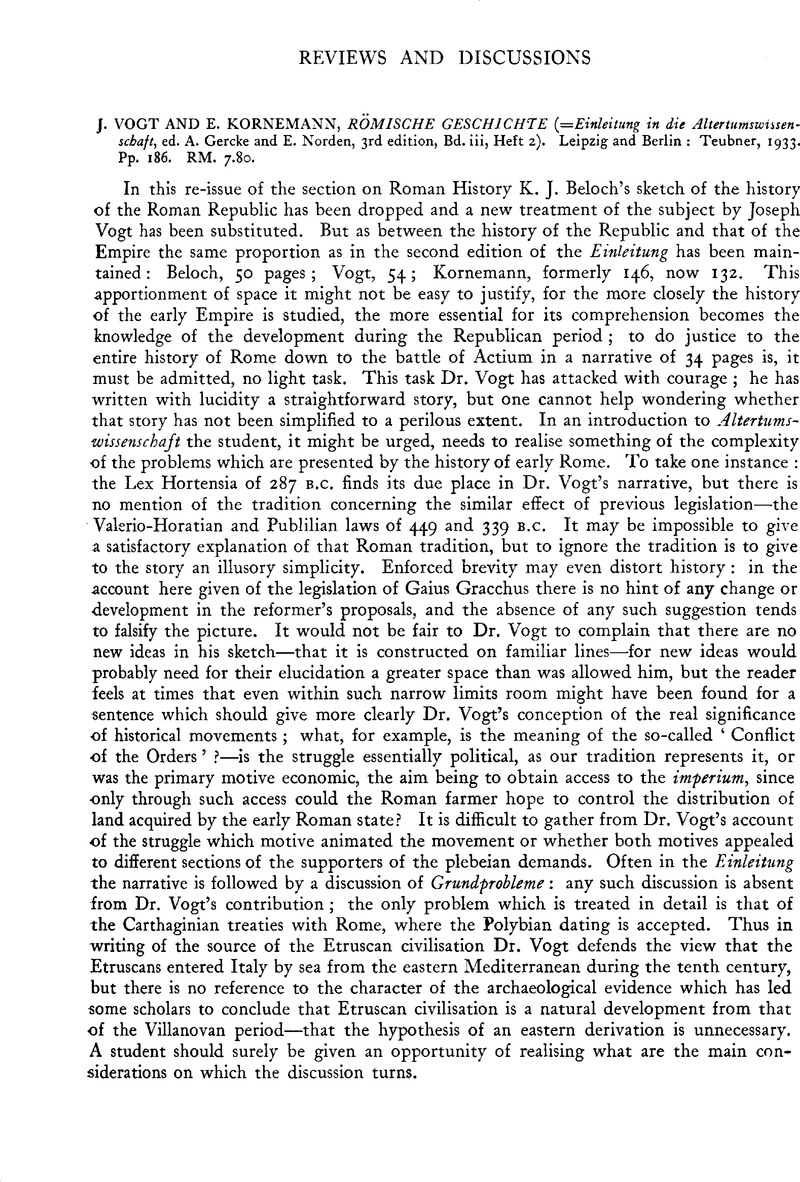Published online by Cambridge University Press: 24 September 2012

1 Cf. L. Bréhier, ‘La transformation de l'empire byzantin sous les Héraclides,’ Journal des Savants, 1917, at pp. 504–505.
2 For ‘maximus’ as epithet of the Princeps cf. Sauter, op. cit., pp. 96 ff., at p. 99.
3 Cf. Nock, A. D., Harvard Theological Review 23 (1930), p. 263CrossRefGoogle Scholar. This idea is found in various forms ‘in Egypt, Judaea and Persia : in Greece it goes back to Homer (Il. ii, 205) and is so natural an outcome of the very existence of monarchy that it is precarious to construct a pedigree.’ See the bibliographical note of Professor Nock, ad. loc.
4 Cf. JRS XVIII (1928), p. 226Google Scholar.
5 Cf. JRS XIX (1929), 227–229Google Scholar.
6 Babut, C., ‘L'adoration des empereurs et les origines de la persécution de Dioclétien.’ Revue hist., 123 (1916), 224–252Google Scholar.
7 Delehaye, H., ‘La persécution dans l'armée sous Dioclétien.’ Acad. royale de Belgique Bull. de la classe des lettres et des sci. mor. et polit., 1921 pp. 150–166Google Scholar.
8 For Dr. Kornemann's statement that Constantine signed the edict of toleration issued by Galerius there is no evidence in our sources. It is highly improbable.
9 In Problem der Spätantike, Stuttgart, 1930 at pp. 33–36.
10 I should have quoted this passage in my comment on the Vita of Alexander Severus in the Hist. Aug., 22, 6. Cf. The Historia Augusta, its date and purpose, Oxford, 1926, p. 138Google Scholar.
11 Cf. N. H. Baynes, op. cit., p. 127.